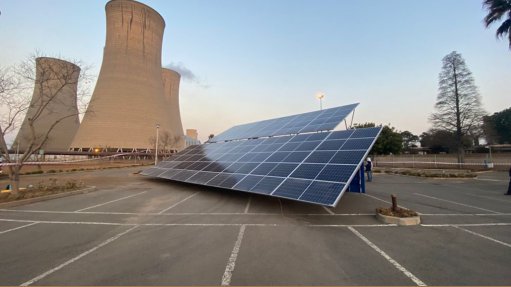
A “pendulum swing” from coal to renewable energy will not guarantee baseload grid stability in the foreseeable future, National Society of Black Engineers (NSBE) president Mdu Mlaba has said.
“It will be completely irresponsible and will plunge the country deeper into the energy crisis,” he warned during a Renewable Energy Dialogue, hosted by the NSBE at the Gordon Institute of Business Science (GIBS) campus, in Johannesburg, on April 20 – wherein pundits discussed pertinent issues that relate to how South Africa might go about bringing an end to loadshedding.
Mlaba said a carefully formulated blend of coal, gas, nuclear, hydropower and renewable energy would be the only way to guarantee energy security and end loadshedding.
He said the NSBE supported calls for Eskom’s transmission infrastructure to be swiftly upgraded to allow for more solar power installations in the Northern Cape and more wind farms in the Western and Eastern Cape.
“If that infrastructure is upgraded, it will allow for renewables to be connected to the grid to create excess gigawatts, which will allow the coal fleet to be taken out of service for proper maintenance,” Mlaba said.
He further noted “a very disturbing trend” in South Africa, wherein he felt that little patience and tolerance was being shown towards those with different views on how to resolve the energy crisis.
“People who contribute a different angle to the energy debate are quickly isolated, mocked and subjected to a barrage of unwarranted personal attacks,” he bemoaned.
He said urgent action was required to update the Integrated Resource Plan 2019 (IRP), which he said was no longer relevant. He noted, for example, that the assumptions made in the IRP relating to the energy availability factor (EAF) no longer applied, as the EAF has deteriorated more rapidly than expected, from 78% in 2018 to 50% currently.
“Once that IRP is updated, what we expect as the NSBE, is that there will be a commitment to stick to it. As a country, we excel in putting policy documents together but when it comes to execution, we are found wanting. We want to see implementation. The speed of execution will be a critical success factor,” Mlaba said.